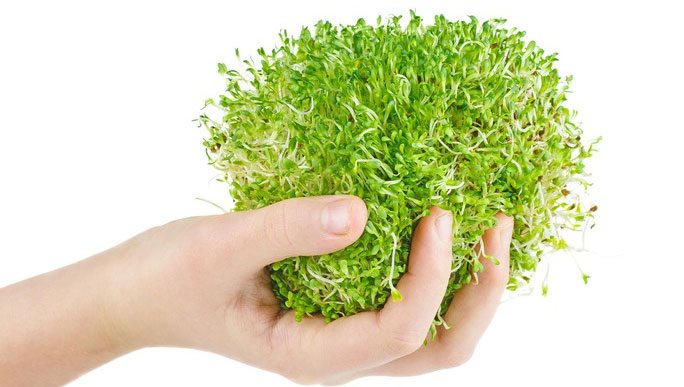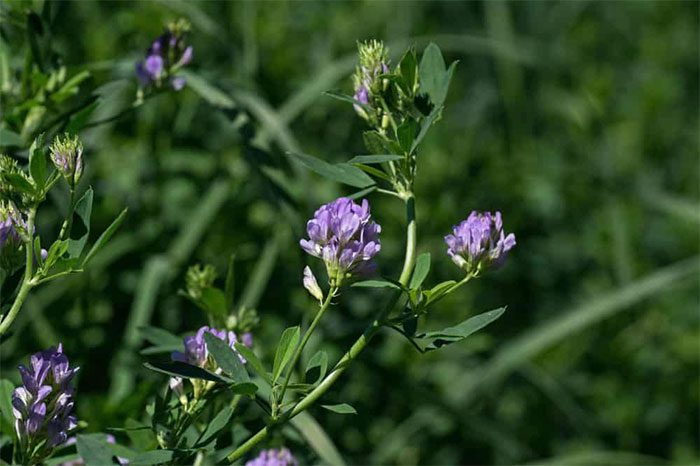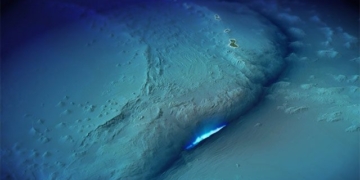If one day humanity decides to truly expand its living space to Mars, finding suitable soil and water sources for growing food crops will be the top priority.
For those who have seen the science fiction film “The Martian” (2015), viewers witness how potatoes were grown to rescue an astronaut stranded on Mars.

Alfalfa. (Photo: Ivaschenko Roman).
However, in reality, due to the low nutrient content of Martian soil and the extremely high salinity of its water, growing staple crops like potatoes is impossible.
“Therefore, it is essential to develop strategies to enhance the nutrient content of Martian soil as well as desalinate saline water for long-term missions” – according to a research paper on crop cultivation on Mars published in the scientific journal PLOS ONE (August 2022).
During the study, scientists discovered that alfalfa could indeed fulfill this requirement.
A research team from Iowa State University found that alfalfa – a plant used as livestock feed – can survive in hard volcanic soil similar to that found on Mars. It could be utilized as a component in nutrient supplements for growing other food plants such as lettuce or radishes.
“The low nutrient soil and highly saline water on Mars are unsuitable for breeding staple crops. Thus, there is a need to develop strategies to enhance the nutrient content of Martian soil as well as desalinate water for long-term missions”, the research team stated.

Alfalfa has potential for cultivation on Mars.
Creating a replica of Martian soil on Earth is no easy task. The research team attempts to create the closest possible replica and then tests the cultivation of various plant species.
Martian soil is largely weathered basalt. Previous studies have indicated that basalt contains many micronutrients such as carbon, hydrogen, oxygen, and other trace elements like manganese, chromium, and nickel.
Alfalfa grown in the replica of Martian soil does not require any additional fertilizers to thrive, similar to growing in Earth soil. This plant was then used by the research team as a nutrient supplement for the Martian soil replica, successfully growing lettuce and radishes – plants that can be adapted for cultivation in space due to their low water and maintenance requirements and their rapid growth.
However, the experiment of growing alfalfa still requires freshwater – a resource that Mars lacks. The research team hypothesizes that saline water on Mars could potentially be processed by a type of marine bacteria and filtered through volcanic rock to produce freshwater.
Another issue is that the replicated Martian soil does not contain certain harmful perchlorate salts present in the real Martian soil. There is a need to find a method to wash away perchlorate salts using Martian saline water. Nevertheless, the experiments have provided a potential option for the best regeneration of the surface soil of the red planet.
According to the research team, in the long term, it may be possible to process the soil and water resources in situ for farming on Mars, supporting future missions as well as settlement goals.
The information that alfalfa is beneficial for soil enhancement on Mars might not be surprising. Farmers have long known that alfalfa is a plant rich in nitrogen and many minerals such as phosphorus, potassium, calcium, sulfur, magnesium, boron, iron, and zinc, making it very suitable as a natural fertilizer for soil improvement.
If alfalfa can help improve Martian soil, the day when farmers can cultivate and harvest food crops on the red planet may not be far off.


















































